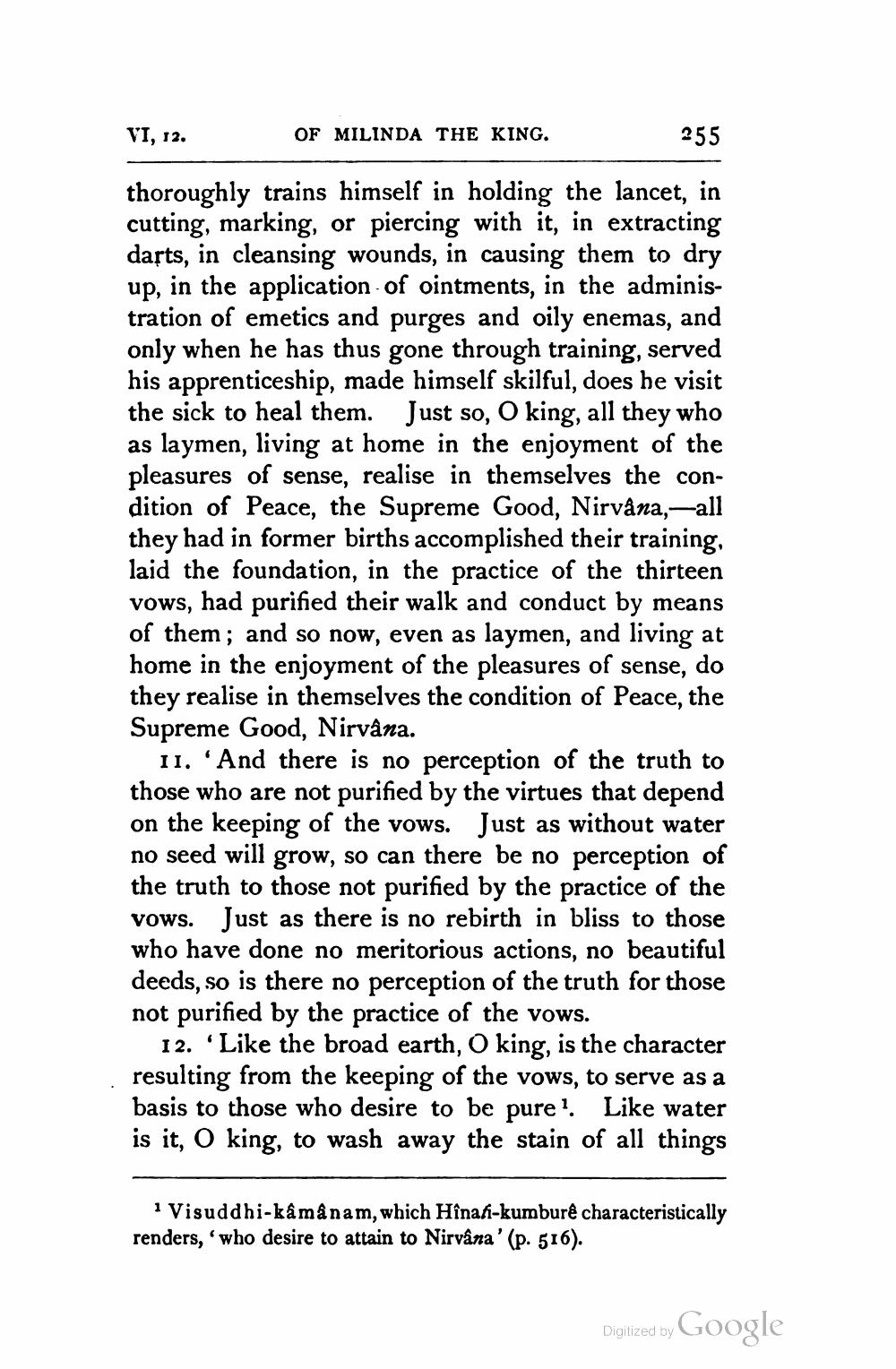________________
VI, 12.
OF MILINDA THE KING.
255
thoroughly trains himself in holding the lancet, in cutting, marking, or piercing with it, in extracting darts, in cleansing wounds, in causing them to dry up, in the application of ointments, in the administration of emetics and purges and oily enemas, and only when he has thus gone through training, served his apprenticeship, made himself skilful, does he visit the sick to heal them. Just so, O king, all they who as laymen, living at home in the enjoyment of the pleasures of sense, realise in themselves the condition of Peace, the Supreme Good, Nirvåna, -all they had in former births accomplished their training, laid the foundation, in the practice of the thirteen vows, had purified their walk and conduct by means of them; and so now, even as laymen, and living at home in the enjoyment of the pleasures of sense, do they realise in themselves the condition of Peace, the Supreme Good, Nirvana.
11. 'And there is no perception of the truth to those who are not purified by the virtues that depend on the keeping of the vows. Just as without water no seed will grow, so can there be no perception of the truth to those not purified by the practice of the vows. Just as there is no rebirth in bliss to those who have done no meritorious actions, no beautiful deeds, so is there no perception of the truth for those not purified by the practice of the vows.
12. 'Like the broad earth, O king, is the character resulting from the keeping of the vows, to serve as a basis to those who desire to be pure? Like water is it, О king, to wash away the stain of all things
1 Visuddhi-kamânam, which Hînati-kumburê characteristically renders, who desire to attain to Nirvana' (p. 516).
Digitized by Google




